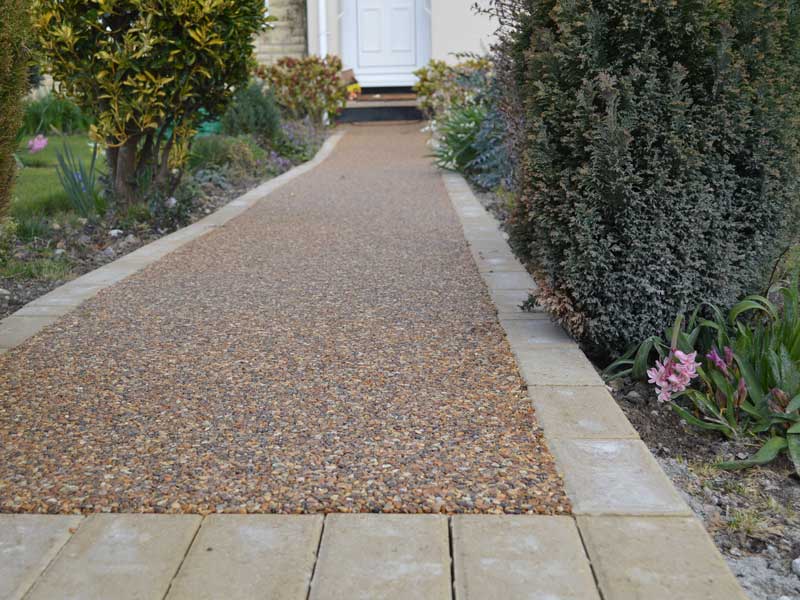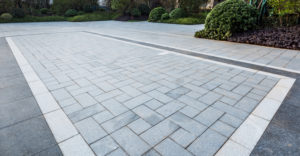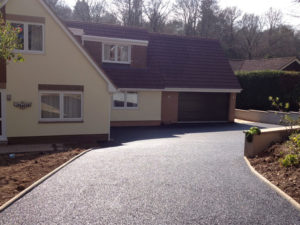
The Evolution of Driveway Materials: From Gravel to Resin-Bound
- Posted on
- admin
How Driveway Surfacing Has Evolved Over the Years
Driveways have come a long way from the humble gravel tracks of the past. As both functionality and aesthetics have taken priority, homeowners and property developers have sought more durable, attractive, and low-maintenance driveway materials.
This blog explores the fascinating journey of surfacing innovations from early gravel options to today’s sleek resin-bound driveways.
Gravel Driveways: The Original Choice
In the early days of domestic surfacing, gravel driveways were the go-to option. Readily available and inexpensive, gravel offered a quick solution to keep vehicles off muddy ground. However, its lack of durability and susceptibility to weed growth, potholes, and rutting made it a high-maintenance option in the long run.
Pros of Gravel Driveways:
- Low initial cost
- Easy to install
- Natural appearance
Cons:
- Requires frequent maintenance
- Easily displaced by tyres and weather
- Poor performance on slopes
The Rise of Block Paving and Tarmac


As expectations grew for cleaner, longer-lasting surfaces, tarmac driveways surged in popularity during the mid-20th century. This asphalt-based solution offered smoother finishes and greater durability, especially in high-traffic areas. Soon after, block paving entered the market, offering a more customisable aesthetic for homeowners seeking both style and strength.
Block Paving vs Tarmac became a frequent debate among property owners with block paving offering a more decorative finish, while tarmac provided a cost-effective and functional alternative.
Block Paving Benefits:
- Wide range of colours and patterns
- Individual blocks can be replaced
- Great for patios and decorative spaces
Tarmac Advantages:
- Quick installation
- Excellent durability
- Ideal for large driveways or car parks
Concrete Surfacing: Function Over Form
Concrete was another important innovation in driveway materials, especially for commercial and industrial sites. Known for its impressive lifespan and load-bearing capacity, concrete is ideal where durability outweighs visual appeal.
However, its colder, utilitarian finish and risk of cracking over time often pushed homeowners toward more decorative alternatives.
Resin-Bound Driveways: The Modern Alternative
Today, resin-bound driveways are setting the standard for modern surfacing. Combining natural aggregates with a UV-stable resin, this option creates a smooth, permeable surface that’s both practical and visually appealing. It addresses many of the issues older materials struggled with from weed growth to water pooling.
As homeowners seek sustainable and stylish solutions, resin-bound as a modern alternative to gravel driveways has grown increasingly popular across Devon, Dorset, and Somerset.
Why Resin-Bound Driveways Lead the Way:
- Fully permeable and SUDS-compliant
- Low maintenance and long-lasting
- Wide range of colours and finishes
- Smooth, slip-resistant surface
Comparing Old and Modern Driveway Materials
| Material | Cost | Maintenance | Aesthetic Appeal | Durability | Permeability |
| Gravel | Low | High | Natural/Rustic | Low | High |
| Tarmac | Medium | Medium | Plain | High | Low |
| Block Paving | Medium-High | Medium | High | Medium | Variable |
| Concrete | Medium | Low | Plain | High | Low |
| Resin-Bound | High | Low | High | High | High |
Conclusion: Choosing the Right Driveway for the Future
From the crunch of gravel to the seamless finish of resin-bound driveways, the journey of driveway materials reflects wider changes in design preferences, sustainability goals, and technological innovation. While each material has its place, resin-bound surfaces now offer a perfect blend of style, strength, and environmental responsibility.
Looking to upgrade your driveway in Devon, Dorset, or Somerset?
Contact Dares Surfacing today to learn more about our expertly installed resin-bound driveway solutions.

